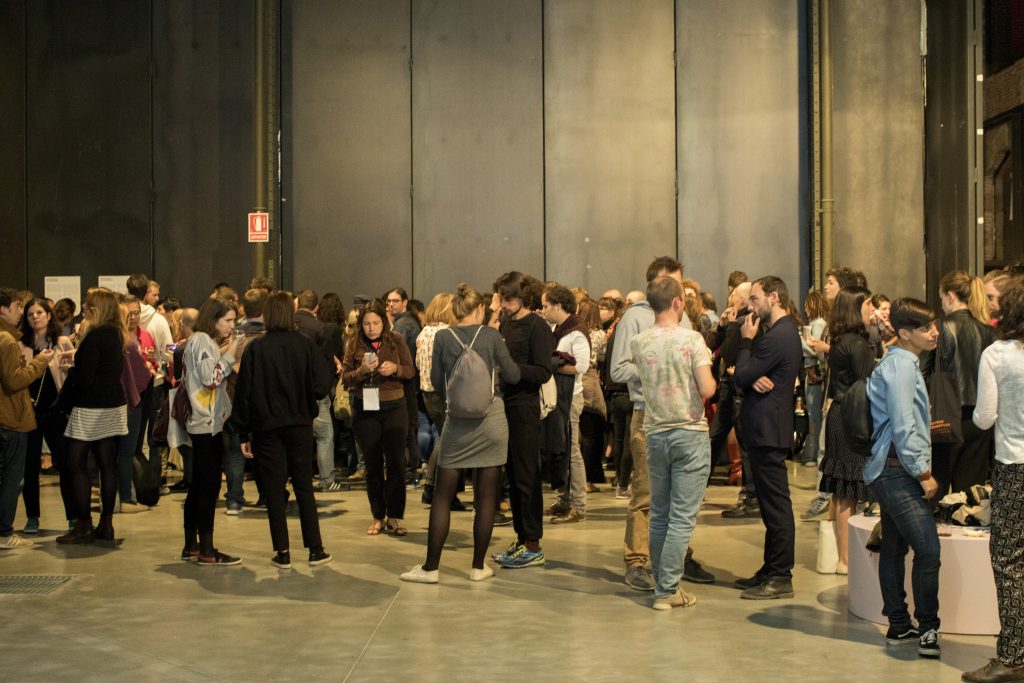By Antje Scharenberg
In the last week of October, Another Europe went to Madrid to take part in European Alternative’s Transeuropa Festival, bringing back new inspiration for progressives to unite across borders.
Bright yellow and red stripes waved from Madrid’s windows and balconies in the last weeks of October. These days, such as ubiquitous presence of Spanish flags is a clear reference to the difficult political situation within which the country finds itself: Spain, like Britain, is a divided country. While Britain’s divorce from the EU is still being negotiated, Catalonia, the country’s northeast region, is currently fighting for its independence from the national government. Thus, it is perhaps more than timely and accurate, to go and find out what another Europe could look like from Spain.
Another Europe recently went to Madrid to take part in European Alternative’s biennial Transeuropa Festival, which brings together artists, activist and politicians in a series of events to radically rethink and redo the European project. Promoting “democracy, equality and culture beyond the nation state,” the format of the festival is in itself truly transnational. Decentralised gatherings took place from Messina to Montenegro and from Ludwigshafen to London. Here, Another Europe co-organised an event that brought together arts and politics to explore how divisions in Britain and Europe might be overcome. From the main festival in Madrid, we brought back a load of ideas, inspiration and in particular the following three questions: what can progressives in Britain and across Europe learn from the scenario in Catalonia, what could another Europe concretely look like, and how can activists connect better across nation-states?
Firstly, what broader questions does the Catalonian scenario raise? Daphne Büllersbach and Lorenzo Marsili from European Alternatives suggest that the Catalonian call for independence is but another example of how the traditional nation-state model is being challenged both from above and from below. They argue that transnational challenges related to climate change, migration and global capital can no longer be addressed by individual nation-states. At the same time, Brexit’s catchphrase “take back control” and the call for more local autonomy also resonate in other geographical contexts. Nevertheless, Büllersbach and Marsili argue that “to take back control we need neither retreat to existing nation-states nor to replicate the nation state’s authoritarian structures at a smaller, regional level.“ Besides the discussions of independence, the question at the heart of our discussions should be: what kind of democracy do we need in the 21st century?
How then could a democracy that operates both on a local as well as on a transnational level concretely look like? One successful example discussed at the festival is the international network of rebel cities across and beyond Europe. Madrid, like other Spanish cities for instance practises this new kind of municipalism. Here, actors from civil society and social movements, who have decided to take their struggle for more democracy into the local governments, are increasing the opportunities for participating, for instance in how the local budget gets spent. To have a representative chamber of cities on the European level could make even more space for such democratic innovations. Cities and communes could also play an important part in an alternative refugee politics. One of the proposals discussed would connect transnational actors with local communes. Making EU funds directly available to communes and cities who are happy to welcome more people, while individual nation-states might still block transnational solutions, could demonstrate that Europe could indeed become a refuge, not a fortress. More details on some of these and other ideas for European alternatives are captured in the festival’s journal and in the open access publication Shifting Baselines of Europe.
Lastly, how can activists and progressives better link up across national borders? This was one of the questions discussed in the workshop run by Another Europe, which facilitated a discussion between a range of different perspectives on Brexit with participants from various national backgrounds. What stood out in these conversations was that progressives in Britain and Europe should strengthen their connections despite, and in fact especially if Britain eventually leaves the European Union. While some concrete proposals were mentioned in terms of how this might be done (for instance by campaigning for exchange programmes like Erasmus to continue, or by collectively mobilsing for truly transnational representation in the European elections in 2019), this was the overwhelming take-away from our workshop: In the context of Brexit, we just have to be even more politically imaginative.
16th November 2017

